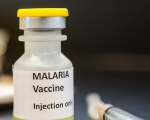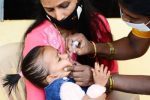
New Delhi: Just 7,000 daily steps can be key to reducing your risk of developing a range of chronic diseases like cancer, diabetes, and cognitive issues like depression, dementia, as well as death, according to a new study published in the journal The Lancet Public Health on Thursday.
The comprehensive review, including 57 studies, analysed data from over 160,000 adults, and found that walking approximately 7,000 steps per day is associated with reductions in the risk of several serious health outcomes.
The 7,000 steps aided in reducing the risk of cardiovascular disease (by 25 per cent), cancer (by 6 per cent), type 2 diabetes (by 14 per cent), dementia (by 38 per cent), depression (by 22 per cent), and falls (by 28 per cent). The all-cause mortality was cut down by nearly 50 per cent.
Notably, while the current unofficial target of 10,000 steps per day, the study highlighted that 7,000 steps daily may be more realistic, particularly for less active people.
“Although 10,000 steps per day can still be a viable target for those who are more active, 7,000 steps per day is associated with clinically meaningful improvements in health outcomes and might be a more realistic and achievable target for some,” said corresponding author Prof Ding Ding, from The Charles Perkins Centre, at The University of Sydney in Australia.
The study also revealed that even modest step counts (around 4,000 steps per day) are linked to better health compared to very low activity (around 2,000 steps per day).
For some conditions, such as heart disease, health benefits continued to increase beyond 7,000 steps, but for most conditions, the benefits tended to level off.
However, the team also acknowledged limitations, such as the small number of studies available, particularly for cancer and dementia, and a lack of age-specific analysis and biases at the individual study level.
Yet, the findings underscore the value of using daily step counts as a straightforward way to measure physical activity, the researchers said.
They suggest these results could help shape future public health guidelines and recommendations, encouraging more people to track their steps as a practical way to improve their health.
IANS


















